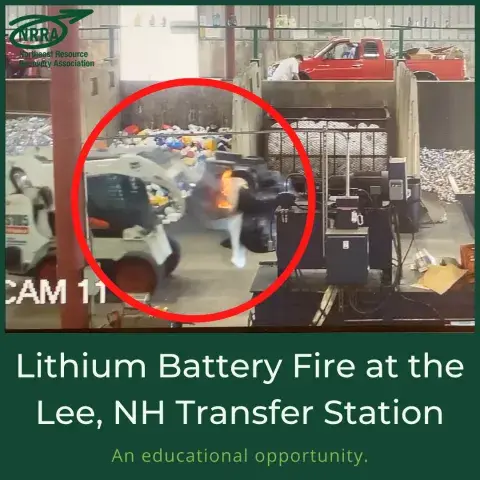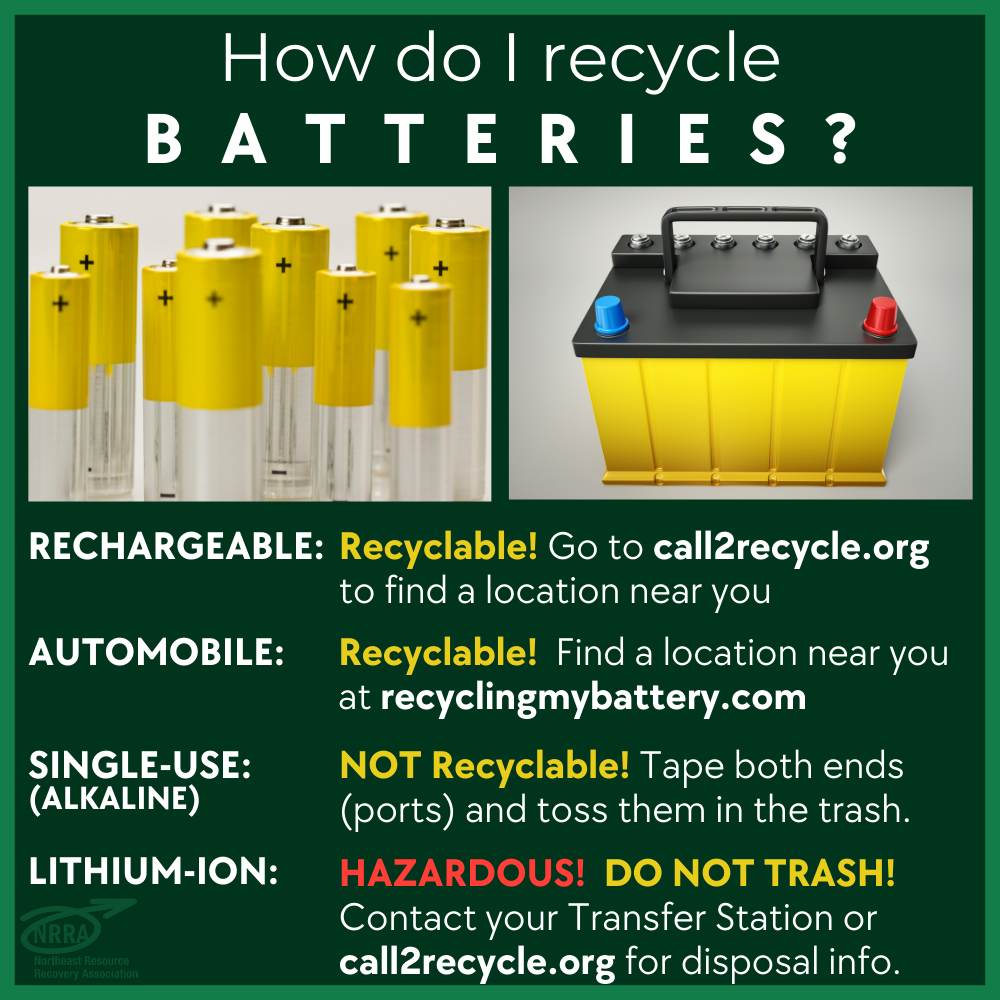
Lithium battery disposal is a hot issue. Recently, NRRA shared a post on how to properly dispose of batteries, including lithium batteries, which are serious fire hazards. When not properly disposed, lithium batteries can easily combust, causing costly damage, injury, or even death.
This fact was brought to life, unfortunately, at the Lee, NH Transfer Station earlier this week when an improperly disposed-of lithium battery caught fire.
"Thanks to the quick thinking of the Transfer Station crew today, this situation was handled quickly and safely. Their training was put to good use, and there was no damage to any equipment or the building," said the Lee NH Public Works Department in a Facebook post. "Again, we got really lucky this was spotted quickly, or the situation could have been much much worse!"
For Operators: What can you do to prevent fires at your facility?
- Alert your residents that ALL household batteries, and especially lithium batteries, need to be handled separately from general trash
- Single-use Alkaline batteries must have ends taped before disposal with household trash (as may still hold some charge)
- Batteries must be removed from items going into the scrap metal as fires have also occurred recently at scrap metal yards
- Download and hang our free 18" by 24" poster on proper battery disposal
- Contact NRRA for various programs for batteries
- Consider attending the virtual NHDES workshop, Batteries and Household Hazardous Waste (2.5 hours of CPD)
From the website: This workshop is designed for solid waste operators who handle batteries of any kind or who may come into contact with household hazardous waste. Instructors will focus on the different types of batteries that solid waste operators may encounter, the hazards that occur with each type and the disposal options for batteries. Discussion will also include managing fires that occur from batteries. Attendees will also learn about household hazardous waste basics.
Please contact NRRA Member Services at info@nrrarecycles.org or at 603-736-4401 with questions.
For Residents: Lithium Battery Education
- Here is a great educational video on how common household batteries can catch fire when improperly stored, as well as an easy way to help prevent it from happening in your home (which is to ALWAYS tape your battery ports prior to throwing them away or storing them together.)
- Share this graphic on Facebook or Instagram to help spread the word

This material is based upon work supported under a grant by the Rural Utilities Service, United States Department of Agriculture. Any opinions, findings, and conclusions or recommendations expressed in this material are solely the responsibility of the authors and do not necessarily represent the official views of the Rural Utilities Service. Rural Community Assistance Partnership, Inc., is an equal opportunity provider and employer.
